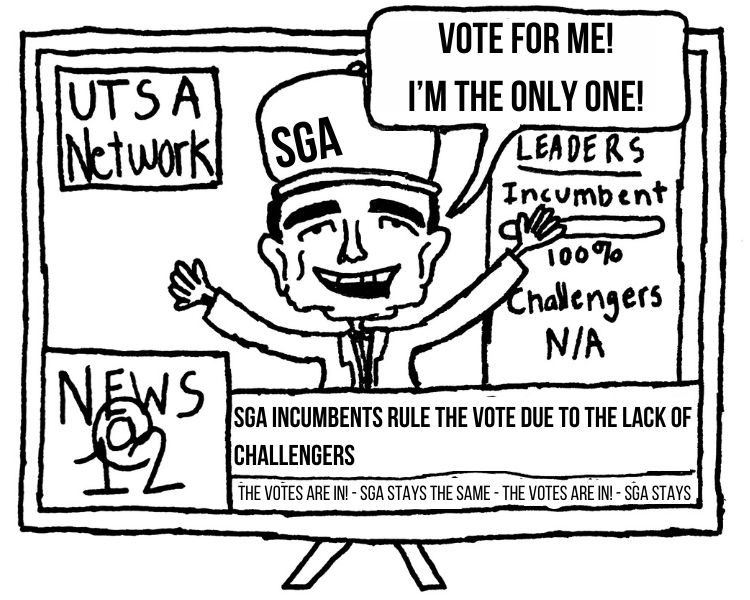“Taking 15 credit hours each semester helps you graduate sooner and saves you thousands of dollars off of the total cost of your college education.” This statement is posted on shuttle stops all around UTSA with images of oversized dollar bills trickling down.
This statement is true, but is saving money now and rushing yourself out of your campus’ door really the best choice for your future?
UTSA wants students to graduate in four-years because it needs quantifiable measures of student success for the push tier-one status. Raising the percentage of students who graduate in four years helps UTSA obtain these measures.
Affordability is one aspect that plays into UTSA’s tier-one status. The average cost of attendance lowers if students graduate in four years.
Indeed, saving money on your education sounds nice, but trying to cram five classes worth of information in one semester is not always the best way to learn.
Taking 15 credit hours helps keep students from getting distracted, particularly those who do not have jobs outside of class. However, many, if not most students at UTSA, work jobs while in school. Students must keep these jobs to pay for tuition, rent and bills.
When bombarded with a 15-hour class schedule and a demanding workweek, students are left rushing to complete an assignment rather than actually learn and retain the information.
Many students do quite well following this formula of rushing to complete all their assignments and then cramming for midterms and finals; though, but ask these students what they learned from their classes a semester later, and many will be hard-pressed to give any specifics as facts, terms and formulas have fallen out of their short-term memory.
If students decide to cut down to even 12 credit hours a semester, they would have the opportunity to actually engage in, critically think about, and perhaps even enjoy their course work. Instead of turning in work they barely had the time to complete, students could turn in their best work—work they actually care about and put thought into.
Having one fewer class to stress over would also allow students more time to participate in extra curricular activities or jobs where they can apply what they have learned in the classroom. Students can intern with a company and get a taste for the areas of the fields they do and do not like. Then, students can then alter and specialize their course work accordingly, not to mention they would have real-world experience to put on their resumes.
Cramming in 15 credit hours a semester to graduate in four-years instead of five or six is only worthwhile if you retain the information being presented. You can show a future employer a paper showing you graduated from college, but if you do not have the working knowledge to back it up, what is the value behind it?
College is the time to develop your skills and expand your mind. It shouldn’t be a race to the finish. Once you leave, you cannot come back and re-take classes you never really grasped or pick up that minor that you almost completed.
We live in a globalized, fast-passed, technology-driven world that the traditional four-year college experience cannot be copy and pasted to.
Students need the time to intern in their fields of study in order to choose appropriate course work and electives. They also need the time to fully engage in class, so they will retain information beyond their final exams.
If you are just going to use the extra time to watch the newest series on Netflix, taking one fewer class a semester is pointless. If you are going to use the extra time to really master the information being presented in your classes and obtain outside experience, then the education will undoubtedly pay for itself.

















